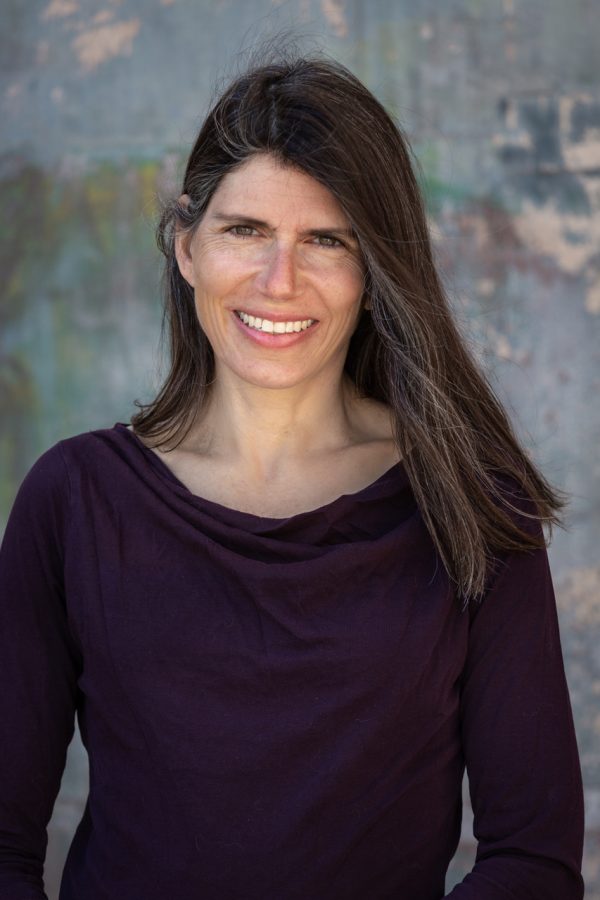Q&A with Dr. Kaspari
March 2, 2022
Meet Dr. Susan Kaspari, a CWU professor in the Geological Sciences department since 2009. With a background in Environmental, Climate and Earth Sciences, her research centers around climate change, including reconstructing climate and environmental change using ice cores from glaciers and factors causing snow and glaciers to melt. She has studied climate change in Antarctica, Tibet and the Himalayas, the Washington Cascades, and will spend a year in Norway studying Arctic climate change in Svalbard next year. She wants to raise awareness to students about sustainability opportunities on campus.
Q: What first interested you in geological and sustainability studies?
A: Since I was in high school I’ve been concerned about the impact of humans on the environment. During graduate school I studied how humans are modifying climate, and became very interested in how we can lessen human impacts and find sustainable solutions.
Q: Living in dorms and apartments, it may feel difficult as college students to “do our part” in participating in sustainability initiatives and combating climate change. What can we do to help?
A: I’m very excited that CWU will be launching a new Sustainability Living Learning Community this fall in Wendell Hill Hall B, which is open to students from all majors and levels. For students who will live on campus next year, this is a great opportunity to live with students with a shared interest to live more sustainability. The community will be focused on all three pillars of sustainability: equity, economy and environment. There are many other ways for students to get involved, such as coming to one of CWU’s quarterly Sustainability Cafes, which brings together the campus community to work on sustainability projects. Join clubs or build community with like-minded students (e.g. through the Environmental Club, SLICE, or the Diversity Equity Center).
Q: How can we as students make intentional decisions in our day to day lives keeping sustainability in mind?
A: There are small choices that everyone makes every day, including students living in the dorms or apartments. Everyone can make small efforts to reduce their impact. Examples include walking to class instead of driving, turning down the thermostat a couple degrees, reducing consumption and buying second hand items, recycling (available in every dorm!), choosing to eat more plant based foods (e.g. Meatless Mondays), or getting a plot to grow food in CWU’s community garden. The important thing is to identify the small changes that you can commit to, and build from there.
Q: Are there any services, programs or departments on campus you think could have more sustainable practices, and how can we as students make that happen?
A: CWU has been making a lot of efforts towards sustainability in recent years, but there is still a lot of work to do! Nearly every aspect of university life could be made more sustainable, whether that is in dining, residence halls, lab based courses, typical office settings, or campus grounds. Know what your realm of influence is, and how you can influence change. If you see something that can be improved on, but don’t know how to implement that change, bring your ideas to CWU’s Sustainability Council or Dr. Kathleen Klaniecki, CWU’s Sustainability Coordinator. Sometimes meaningful change can start just by having conversations about sustainability issues with people who trust you and with whom you have shared values.
Q: What environmental or geological courses do you think all college students should take if they are interested in, but not majoring in, such studies?
A:There are so many great course offerings! For students who want to get actively involved in taking action to improve sustainability, I encourage them to take ENST480 Campus Sustainability, which allows students from any major or any level to work on a project to improve sustainability. I’m teaching that class this spring. CWU also has a Sustainability Certificate Program. Environmental and geology general education courses which allow students to learn more include ENST201 Earth as an Ecosystem, ENST202 Environment and Society, GEOL201 Water and Climate, and SUST301 Introduction to Sustainability. There are dozens of other courses across colleges that are focussed on or include sustainability. This year Heather Spalding and I are serving as Provost Sustainability Fellows, and as part of this effort we are creating an inventory of sustainability courses. That information will be made available to the campus community later this spring.
Q: I read you like to hike. What are your favorite local hikes, favorite Washington hikes and favorite national hikes? What international hikes are on your bucket list?
A: Locally I frequently visit Manastash Ridge (my favorite hike is the Prater Trail), Rattlesnake Ridge in the Yakima Canyon, and I love to go birding in the mornings at Irene Rinehart. In Washington I have too many places I love to choose a favorite; I love anywhere that takes me into high alpine environments and near glaciers, and I love wildflower and berry season. In the United States my favorite places are wherever there are mountains, in the Colorado Rockies where I grew up, and the Washington Cascades near home. Right now my international bucket list is dominated by places I am looking forward to exploring in Norway next year.
Q: If you could be any animal, what would it be and why?
A: I would be a Western Tanager, which is a beautiful songbird that migrates long distances and eats a lot of fruits and berries. I’d love to be able to fly and travel the world under my own power, and I’m happiest to eat a plant based diet!


